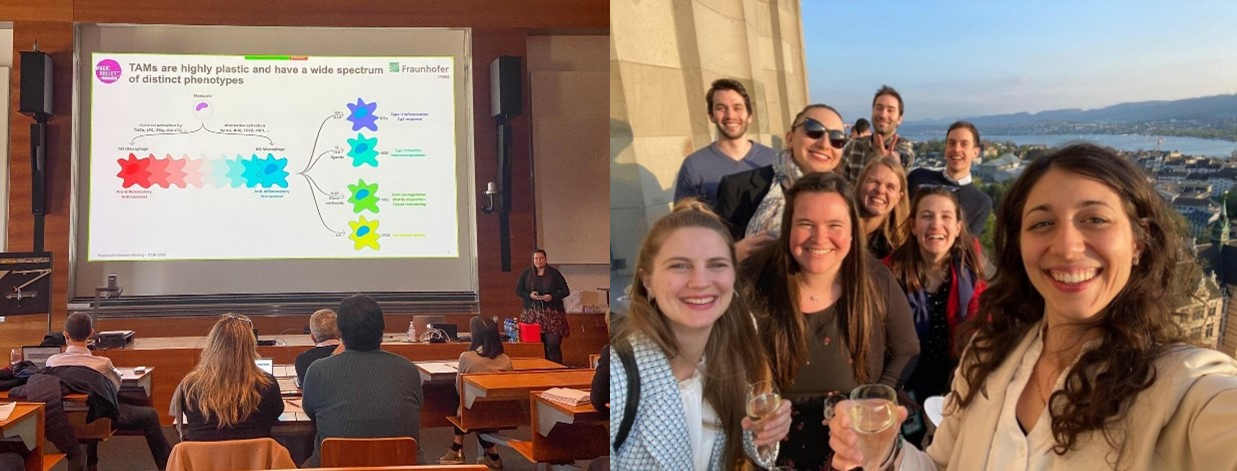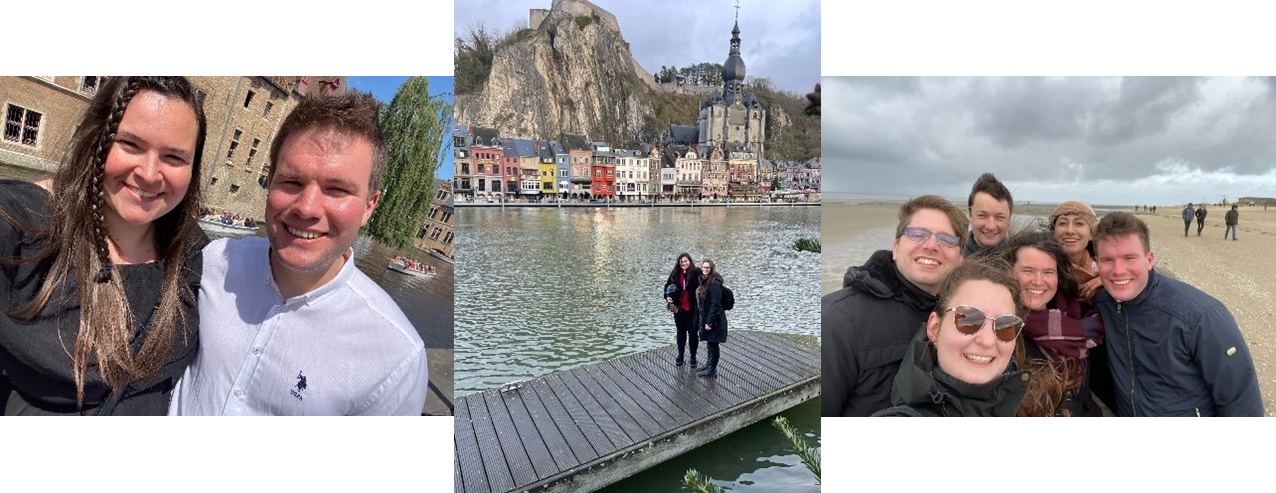My Ph.D. journey started the moment I contacted one of my professors in my home country, asking if he still had an open position in his lab. Which unfortunately he did not—but fortunately, he knew someone in Germany that was still looking for a Ph.D. student. Since I had already lived abroad in the past, the fact that this position would be in Germany did not scare me off. On the contrary, I was actually even more excited when I received an email response and we scheduled the first interview. The more I learned about the project, the more excited I became.
As you can imagine, I was extremely happy when I heard that I got accepted for this Ph.D. position within the European Training Network (ETN) Magicbullet::Reloaded consortium. At the same time, the realization hit me that I would be moving to a different country—and not just for a year or a few months, this time it was for the long run. Luckily, the search for an apartment and all the other administrative stuff that goes hand in hand with moving abroad went quite smoothly for me.
 |
|
Left: Giving a presentation with an update about my research at a networking meeting in Zurich, Switzerland, to Ph.D. students and PIs within the Magicbullet::Reloaded consortium; right: Toasting to an educational and successful networking meeting after the presentations. |
Lockdown and Loneliness
For me, the beginning of this new journey was not so difficult. Of course, it was in the middle of a lockdown, and my first few months were mostly spent working from home. Thus, it was out of the question to get to know my colleagues on a more personal level. However, since everyone was going through the same situation, somehow this thought made it a bit better. I was in a new country, I had time after work to explore and go on adventures such as going to the supermarket, which is an entire adventure on its own in a new country, or discovering hidden places and new areas.
The loneliest moments were not during these initial months, but rather, they sneaked up on me afterward. The lockdown rules in Germany were lifted little by little, first allowing everyone to have contact with one additional household. Sadly, but understandably, all the people I knew—i.e., my colleagues—obviously chose a close friend or relative to see. On top of that, things in Belgium had already loosened up a little bit more, and I was seeing pictures of my friends and family all together, having fun. Having no close friends or any family at that time here in Germany, I felt homesick and more alone than ever.
Work Alone or Ask for Help?
The loneliness took me by surprise, not only in my private life, but also in the laboratory. Due to the coronavirus safety measures at work, my supervisors were working from home full-time. Getting started with the initial experiments with minimal guidance was a process of trial and error. Of course, everyone was saying I could ask them for help when needed. However, seeing how busy they were with their own experiments, I would rather figure things out on my own and not bother anyone with my questions.
This was not ideal and I might have lost a lot of time due to this approach, making the same mistakes someone else probably had already made before. In the end, I learned a lot from those mistakes, and the reward was all the greater when something finally did work. Of course, a mixture of both would have been better: On the one hand, when you make mistakes or there are problems, it is good to try to figure it out on your own. As a matter of fact, it will increase your ability to deal with the struggles and solve those problems. In my opinion, this strategy works for a certain amount of time. Nevertheless, when the struggle continues for too long, I learned that it is worth asking for help from a more experienced person. They have most likely faced the same issues and might be able to help you relatively quickly and easily.
Building a Life Abroad
Luckily, this feeling of being all alone did not last too long. Eventually, the lockdown was lifted and I was finally able to get to know my colleagues better and also meet people outside of work. Furthermore, we were finally able to have our first networking meeting in person in Rome! Besides the many interesting workshops and seminars, it was good to finally meet the people that went through the same process and experienced the same struggles. Hearing that other people also had difficulties with the language barrier, or hearing that I am not the only one familiar with the well-known imposter syndrome (which I am still confronted with from time to time) helped a lot to make me feel less alone.
Additionally, I now also have had the time to build up a life here in Germany, to create a second home. Even though the homesickness kicks in even more frequently now, it is in a good kind of way. When I am in Germany, I obviously miss my family, friends, and dog in Belgium. When I am in Belgium for the holidays, I miss my life, my friends, and the community I have built in Germany. However, no matter what country I am in, at least I do not feel alone anymore.
 |
|
Left and center: Showing the friends I made in Germany hidden gems in Belgium; right: Friends from Germany showing me new places in their home country. |
In the end, I am very happy with my decision to move to a new country and start my Ph.D. there, and I do not regret making it. Eventually, the good moments definitely outweigh the bad moments.
Ph.D. Journeys Abroad – And so the Adventure Has Begun …
Stories about obtaining a Ph.D. in a foreign country, facing challenges, and experiencing positive changes
Ph.D. Journeys Abroad – Be Kind to Yourself
A look at problems during a Ph.D. abroad and the importance of realistic expectations
Ph.D. Journeys Abroad – Overcoming Impostor Syndrome: Why Did I Feel Like It Was Just Me?
Stories of feeling out-of-place during a Ph.D. abroad, overcoming doubts, and finding connection on social media (will be published in January 2023)
Ph.D. Journeys Abroad – The Challenges of Starting a New Life Far from Home
How finding one’s strength and accepting help can help to overcome the pressures, doubts, and stresses a Ph.D. abroad brings with it (will be published in February 2023)





Quite educative.